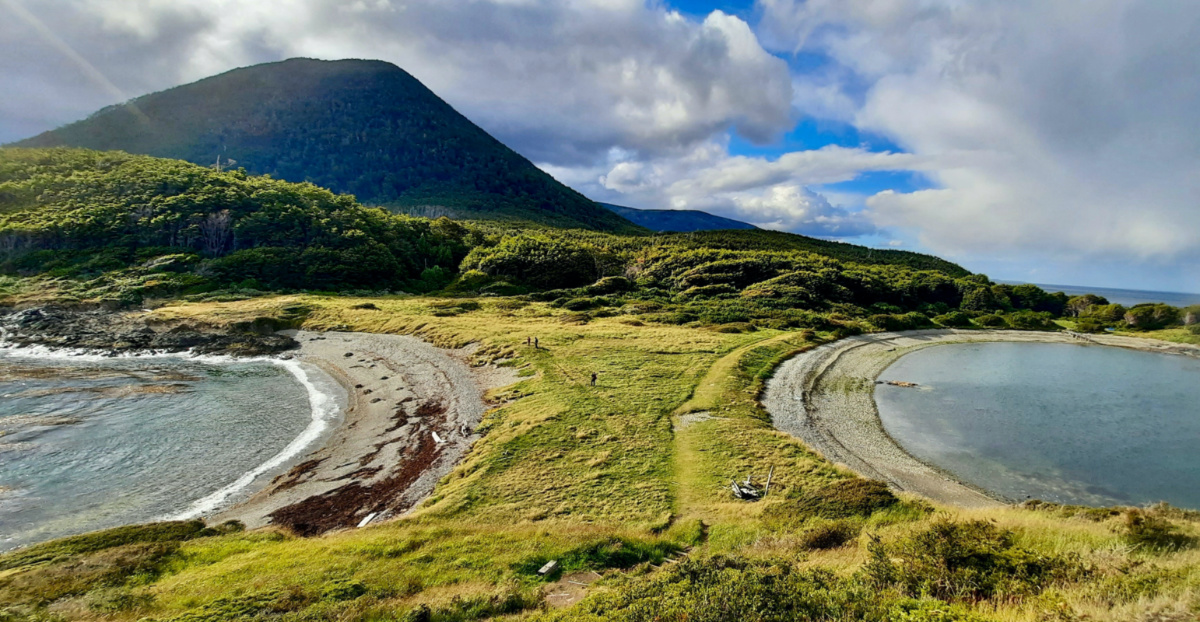Santiago, Chile
Reuters
Chile launched a program on Monday to protect the huemul, an endangered southern deer, by creating a biological corridor that includes an area recently donated by the family of the late philanthropist and founder of the North Face, Douglas Tompkins.
The Rewilding Chile Foundation, Tompkins’ legacy, along with Chile’s Ministry of Agriculture, said that the “Huemul National Corridor” will be made up of approximately 16 connected, state-protected areas alongside other private conservation initiatives.

A general view of a Cabo Froward area that could be donated by Tompkins Conservation and Foundation Rewilding Chile, to create a future conservation area and a National Park in the Punta Arenas commune, at Magallanes region, Chile, in this undated handout photo obtained by Reuters on 3rd March, 2023. PICTURE: Rewilding Fundation Chile/Handout via Reuters.
“This public-private initiative seeks to reduce threats to the species, strengthen huemul populations in key conservation areas of the Patagonian Park Route,” the ministry said in a statement, adding that it will also build the world’s first Rescue, Rehabilitation and Reproduction Center for Huemuls.
Last week, Kristine Tompkins, co-founder and president of Rewilding Chile, met with President Gabriel Boric to donate 93,492 hectares for the creation of a new national park in the Magallanes region.
“This is one of the reasons that this park is so important not only for Chile but for the world,” Tompkins told Reuters, adding that Southern Chile is an important source of carbon sequestration due to its peat bogs and untouched forests. “This is a ‘great goal’ for conservation and fighting against the climate crisis.”
The huemul is one of two species of native deer found only in the Patagonian forests of Argentina and Chile. But habitat degradation has reduced the huemul to less than one per cent of its original population, according to ministry data.
Adult huemuls, also known as güemuls, can reach about 1.55 metres in length, 80 to 90 centimetres in height and weigh up to 68 kilograms. They are herbivores and live for about 14 years.
Despite being originally found in areas in central Chile, the huemul can now be seen mainly in the southernmost regions of Aysen and Magallanes.
“A species like the huemuls will not survive if all its places are not connected and this is a very broad vision that will serve as a model in many other parts of the world and will be the act that saves this species,” Tompkins said.






